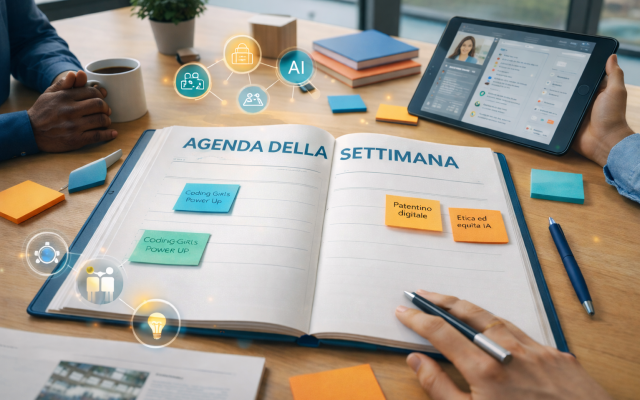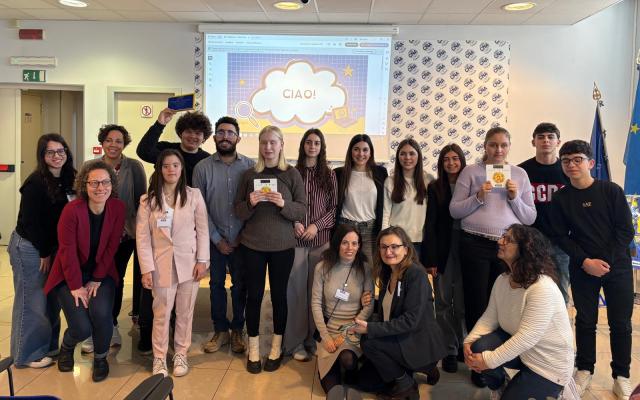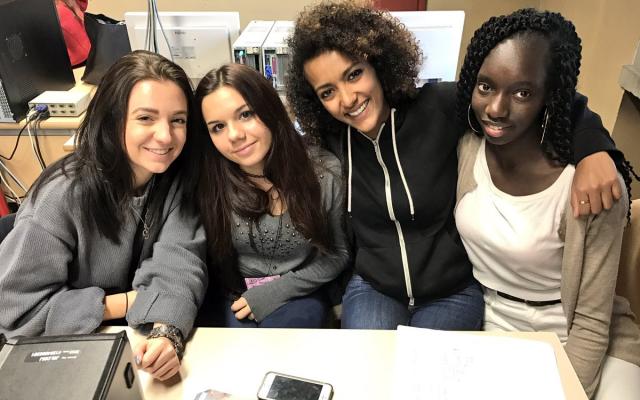Elisabetta and Ilaria's account of their mission in Maputo
From 19 to 24 May, project manager Ilaria Graziano and project officer Elisabetta Gramatica are in Maputo to take part in the final seminar of the Coding Girls in Mozambique project and to meet partners, institutions and young people involved in the three projects active in the area: Coding Girls in Mozambique, Digital Embrace and ICT Employment Generation. This is a strategic mission that serves to strengthen ties, share results and look to the future of educational and digital cooperation. We asked Elisabetta and Ilaria to share their experience day by day. Here is the fourth “page” of their travel diary [read the other pages: first, second, third].
Day 5, 23 May
After two intense days of meetings and activities, we woke up this morning feeling more relaxed and headed to the university campus to visit the incubator of the Computer Centre of the Eduardo Mondlane University of Mozambique (Ciuem). During the meeting, Leila, whom we had only seen on calls during the three years of the project until a few days ago, told us in detail about the meticulous and extremely valuable work they are doing at the university incubator.
We then had the opportunity to talk to other start-ups, who briefly shared their project ideas with us, and finally we visited the IT centre, where Dr Antònio Morais, whom we had also met during some online sessions in recent years, was giving the students a very interesting exercise: a simulation of a “hacker attack” in which, thanks to malware, the students could access their assessments and grades and modify them.
We made a stop at Feima, now one of our favourite places for shopping and lunch, and were then accompanied by Alberto, a CIES aid worker, to Maputo Cathedral for the start of the “Maputo Walking Tour”, a three-hour walking tour of the Mozambican capital, guided by Milton, our guide.
We started from Maputo Cathedral, one of the city's main Catholic places of worship. Inside the cathedral, Milton told us that before the arrival of the Portuguese, the people of Mozambique believed first and foremost in their ancestors and had their own culture. Today, customs, traditions and religions are all mixed together: “We don't have crush of belief, we respect each other,” Milton shared with us before continuing his story: 'When Mozambique gained independence, attempts were made to eliminate everything Portuguese: statues, symbols, street names and monuments. Ninety per cent of the Portuguese left, some to South Africa, others to Portugal; the rest became Mozambican citizens. Mia Couto is an example of this: one of Mozambique's most famous writers, of Portuguese origin but deeply rooted in the local culture."
Milton then took us to the Franco-Mozambican Cultural Centre, one of the most dynamic cultural spaces in Maputo. Located in a colonial building, it hosts art exhibitions, concerts, film screenings and workshops. It is a bridge between French and Mozambican culture and a reference point for local artists.
Next, we visited the Mercado Municipal, one of the oldest and most authentic markets in Maputo. Built in 1901, it still retains its colonial architecture. Here you can experience the daily life of the city: stalls selling fruit, spices, handicrafts and colourful clothes, a real immersion in the flavours and colours of Mozambique.
After taking some typical local streets, with vendors everywhere, we visited the Maputo Fortress, called “Fortaleza da Nossa Senhora da Conceição” by the Mozambicans. It is a historic building constructed in the 18th century by the Portuguese to protect the bay. Today, it houses a museum that tells the colonial history of the country, with artefacts, cannons and a stunning view of the city.
How did we end our last evening in Maputo? With an aperitif with Roberta, programme manager at CIES, partner and friend, at Mundos, a very popular venue, especially at weekends. With the sound of the city in the background, typical of a Friday evening, and the awareness of how much we had experienced in such a short time, we said goodbye to Roberta with a touch of melancholy but with a great sense of gratitude.
Tomorrow we set off again: the long journey back to Italy begins, taking with us everything we have experienced, with the desire to treasure it and transform the emotions we have felt and the encounters we have had into new opportunities for work and exchange.




